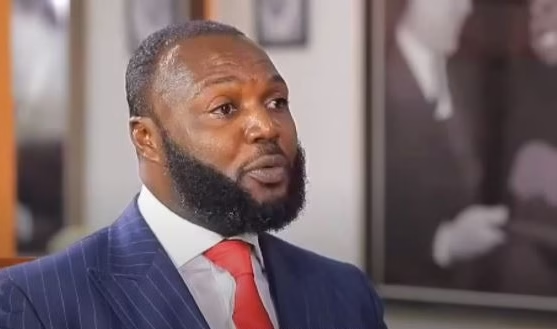President Akufo Addo Grants Clemency to Convicts, Including Ato Essien
In an end-of-year gesture of reconciliation, President Nana Addo Dankwa Akufo-Addo exercised his constitutional prerogative of mercy, granting pardons to several convicts. Among them is Ato Essien, former CEO of the defunct Capital Bank, whose legal troubles stemmed from Ghana’s financial sector cleanup between 2017 and 2019.
Ato Essien’s Journey: From Financial Scandal to Clemency
Ato Essien’s conviction in October 2023 followed a turbulent legal battle over his role in the collapse of Capital Bank. He was found guilty of embezzling GH¢620 million in liquidity support provided by the Bank of Ghana, an act that contributed to financial instability in the banking sector.
Initially, Essien entered a restitution agreement with the state to repay GH¢90 million to avoid imprisonment. However, despite multiple extensions since December 2022, he failed to fulfill the terms, leading to his 15-year prison sentence.
Essien’s clemency is reportedly influenced by his deteriorating health, which includes severe life-threatening medical conditions and multiple surgeries.
Other Notable Pardons: Philip Assibit and More
In addition to Ato Essien, the President extended clemency to Philip Assibit, who was serving a 12-year sentence for causing financial loss to the state. Assibit’s case involved the fabrication of documents to justify a $4 million loan intended for the Ghana Youth Employment and Entrepreneurial Development Agency (GYEEDA).
Seven other convicts also received presidential pardons:
- Akwasi Alhassan: Convicted of murder in 1993 and sentenced to death. After 31 years in prison, his sentence has been commuted to life imprisonment.
- Beatrice Ofori: Convicted of human trafficking in 2023 and sentenced to 8 years. Now 64, her severe hypertension has left her immobile and reliant on the prison infirmary.
- Frank Obeng: Serving 40 years for manslaughter, his sentence has been reduced to 12 years after spending significant time in Nsawam Prison.
- Stephen Nyarko: Convicted of robbery in 2010 and sentenced to 30 years. After 22 years in custody, including time spent in remand, his case was reviewed.
- Osman Inusah: Convicted of conspiracy to commit robbery. His clemency petition cited mental health challenges requiring home care.
- Joseph Nana Kwaku Boateng: Serving a 15-year sentence for possession and attempted export of narcotics since 2019. He has already served 8 years, including time on remand.
- Emmanuel Adu Mensah: Convicted in April 2024 for possession of narcotics and sentenced to 15 years. He remains in Nsawam Prison.
Clemency as a Tool for Reconciliation
The President’s decision to grant clemency reflects a broader initiative of mercy aimed at addressing issues of justice, rehabilitation, and humanity. While some recipients’ cases involved financial crimes, others highlighted health challenges, lengthy remand periods, and calls for justice reform.
Public Reaction and Implications
This act of clemency has sparked mixed reactions. Supporters see it as a compassionate gesture in line with the President’s constitutional authority, while critics question the timing and rationale behind specific pardons, particularly high-profile cases like Ato Essien.
As Ghana reflects on this move, the clemency serves as a reminder of the delicate balance between justice, mercy, and governance.



